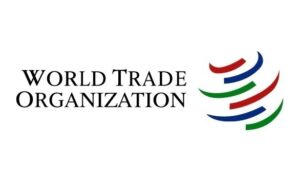
On October 9 this year, President of Uzbekistan Shavkat Mirziyoyev familiarized himself with the draft master plan for the city of Tashkent.
Currently, the city’s territory is 43,822 hectares and the population is over 3 million people. These figures will undoubtedly grow in the future. In this regard, a master plan for Tashkent until 2045 has been developed.
According to the project, the territory of Tashkent will be divided into three zones. The conservation zone will ensure the preservation of cultural heritage sites, historical sites, buildings, and green areas. In the reconstruction zone, additional construction will be possible based on master plans. In the renovation zone, new construction will be carried out on the site of old housing and dilapidated buildings, as well as their repair.
In particular, it is planned to triple the area of green spaces in Tashkent and its environs to 25,000 hectares. This will increase the area of green space per capita from the current 3 to 6 square meters.
According to the requirements of urban planning, residents should be able to reach the nearest kindergarten, school, hospital, shopping and service facilities from their place of residence in no more than 15 minutes. In this regard, the public transportation network will be expanded, the number of hubs and stops will be increased, new roads will be built and metro bus routes will be organized.
Tashkent’s growth is putting additional pressure on the city’s electricity, water and sewerage infrastructure. The new master plan includes measures to increase the capacity of these systems to ensure sustainable operation.
The President of Uzbekistan has set a goal to turn Tashkent into a metropolis with a population of at least 7.5 million people. To this end, it is planned to develop the districts of Tashkent region – Kibray, Zangiat, Yukorichirchik, Urtachirchik and Tashkent – on the basis of a single agglomeration with the capital.
The project is aimed at creating comfortable living and working conditions in a fast-growing metropolis, which will make Tashkent even more environmentally friendly and modern.

The Uzbek authorities intend to conclude negotiations on joining the World Trade Organization (WTO) in the near future, the press service for the Uzbek Investments and Foreign Trade Ministry said.
Deputy Prime Minister and Investments and Foreign Trade Minister Sardor Umurzakov spoke at the latest meeting of the working group on Uzbekistan joining the WTO, its fifth, in Geneva.
“The head of the Uzbek delegation confirmed firm determination to actively promote the process of the republic joining the WTO and concluding bilateral negotiations with all interested member states of the organization in the near future,” the press service said.
The working group has begun detailed discussion of the documents presented on Uzbekistan’s foreign trade conditions, including a fact-based digest, answers to the questions of member states, information on economic policy, measures implemented to privatize government assets, customs and tariff policy, state support for agriculture, and industrial subsidies, it said.
All 25 WTO member states speaking unanimously declared their full support for Uzbekistan’s entry into the organization, emphasizing that this will allow the republic to integrate into the multilateral trade system in full and give impetus for the further development of its trade-economic ties with all member countries.
“The results of the activities carried out by the interagency commission on work with the WTO within the framework of the process of Uzbekistan’s accession to the organization, including in the array of preparations for an expanded package of documents and bilateral talks on access to the country’s market, were given a positive assessment,” the press service said.
The Uzbek delegation is also holding a number of bilateral negotiations in Geneva on access to the goods and services market with the United States, the European Union, Canada, Brazil, Switzerland, Indonesia, Saudi Arabia, Mongolia, and other key WTO member states.

Farmak pharmaceutical company (Kyiv) in the first half of the year ranked fifth in the pharmaceutical market of Uzbekistan, the company’s share was 2.3%.
Anton Zubov, the director of marketing and sales to the CIS countries of Farmak, told Interfax-Ukraine that in January-June 2021 the company increased sales in the Uzbek market by 61% in monetary terms compared to the same period in 2020.
“Our growth would have been even higher, however, during the pandemic, we were forced to limit the export of enoxaparin sodium (included in the COVID-19 treatment protocols) in favor of meeting the needs of the Ukrainian patient as a matter of priority,” he said.
According to Zubov, Uzbekistan is a key country in the company’s export sales. In the structure of shipments of Farmak products to the CIS countries, it occupies 50%.
Speaking about the main drivers of market development, Zubov noted the focus on the purchase of vaccines and the rapid growth of COVID-associated drugs, mainly antibiotics and anticoagulants.
“It was the increase in the consumption of these drugs that led to such a significant increase in the market this year,” he said.
Zubov stressed that export is a strategic direction for Farmak, and Uzbekistan ranks first in its overall structure.
“According to the export assessment data for the first half of 2021, Farmak is the undisputed leader among Ukrainian pharmaceutical companies supplying their products to the CIS countries. Our share is 32%, which is more than twice the share of our closest competitor. The growth for the same period in relation to the previous year amounted to 23%, this year – 9%. The market share increased by 1.4 percentage points,” he said.
Zubov said that during the COVID-19 pandemic, the first place was taken by the Flenox drug, which is used to treat and prevent blood clots.
In addition, the endocrinological portfolio of the company, with the key drug Dialipon, is also in demand.
The company also notes a consistently high demand for the antiviral group, in particular, for the Amizon drug and the Picolax laxative drug.
At the same time, Zubov noted that, like many countries of the CIS region, Uzbekistan is trying to protect the interests of domestic producers.
“We see that Belarus is moving this way, introducing strict quotas on imported goods and restricting imports on pharmacy shelves. In Kazakhstan, for example, there is a “third is a crowd” rule, when, if there are two offers from local producers, the third offer from the importer is automatically withdrawn. Uzbekistan also actively defends the interests of its manufacturers. Assessing the obvious trends, our company plans to localize production of solid dosage forms in the territory of this country,” he said.
According to Zubov, at present, Farmak is actively developing a project to localize production in Uzbekistan on the basis of a pharmaceutical cluster, which is being built near Tashkent.
“Farmak has already declared its intentions to be localized in Uzbekistan. At the moment, we are actively negotiating with the directorate of the pharmaceutical cluster and are now at the stage of negotiating an investment agreement, “he said.
Zubov recalled that the declared volume of investments is $ 10 million, but “already now we see that, in fact, the amount of investment is likely to exceed the originally planned one.”
“Good equipment and specialists are expensive,” he explained.
Zubov said that traditionally the pharmaceutical market of Uzbekistan is the fourth largest in the CIS. According to IQVIA, its volume in 2020 amounted to $ 1.3 billion against $ 1.6 billion in Kazakhstan, but Uzbekistan is developing more dynamically and may take third place in 2022.
In January-June 2021, the pharmaceutical market of Uzbekistan grew by 75% in monetary terms (in U.S. dollars) and by 45% in natural terms (in the number of packages).

The interagency commission for international trade at a meeting on Monday decided to stop the countervailing investigation into imports of new passenger cars originated from Uzbekistan to Ukraine, the Economic Development and Trade Ministry of Ukraine has said in a press release. “During the investigation, the Embassy of Uzbekistan in Ukraine presented official explanations: according to the presidential decree No. pp-800 dated August 21, 2008 on the creation of an enterprise with foreign investment (CJSC general Motors Uzbekistan) benefits were provided to Uzbek manufacturers, which starting from 2018, are no longer valid,” the Economic Development and Trade Ministry said.
The Ministry of Foreign Trade of Uzbekistan also informed the commission that the main share of exports of Uzbek cars in Ukraine is accounted for small class A cars, which are not produced in Ukraine, the ministry said.
“Thus, the interagency commission for international trade found that the use of compensatory measures is not necessary, and also decided to stop the countervailing investigation regarding the import to Ukraine of passenger cars originating from Uzbekistan without the application of measures,” the Economic Development and Trade Ministry reported.